Food Security to Combat Hunger
We are working towards a Philippines free from hunger and poverty. One way to address hunger and poverty is to ensure food security. Through initiatives such as the Growing Hope project, we have been helping communities gain reliable access to a sufficient quantity of affordable, nutritious food. This is particularly important during the Covid-19 crisis.
While we continue to distribute food bags to families and to enroll children in our Mingo Meals Feeding Program, we know that this is but a temporary fix. The old adage about teaching a man to fish instead of giving him a fish comes to mind. We hope we do not limit ourselves to simply giving people food. We wish to go beyond that, to teach our beneficiaries how to create and sustain their own food sources.
In the urban setting, we have been helping communities grow gardens wherever they can, whether it be in a loaned empty lot or in small pots. If they do not consume all that they grow, they can sell the produce to earn some money. And in the rural setting, we have been working with small farmer partners. These are our Farmers of Hope. Currently we work with three farming communities. There is one in San Carlos, Negros Occidental in the Visayas. And the two others are in San Isidro and Mangkay, both in Davao del Norte, Mindanao.
Help for Our Farmers of Hope
We provide our Farmers of Hope with seeds and new farming tools. We also help them with crop planning and give them some training on updated farming techniques. To give them access to an additional source of protein, community fish ponds are built. These changes, small as they are, already provide the communities with a fairly steady internal supply of food. As a bonus, the farmers are able to earn more income. Better tools and updated techniques lead to a higher yield come harvest time. The farmers are also able to earn more because we buy produce at fair prices directly from them, cutting out the middle man and ensuring that all the profits go back to the community. In the future, we hope to help these communities make value-added products from what they grow and give them better access to markets.
Partnership with Control Union and Davao LGUs
Being a non-profit organization, we rely on the generosity of kind donors to help our beneficiaries. How grateful we were to recently partner with Control Union Philippines for our work with the San Isidro Farmers of Hope! Two farming associations make up our Farmers of Hope community in San Isidro: SIFA (Suop Igangon Vegetable Farmers Association) and SULA (Souc Luya Farmers Association). Control Union has committed to providing the resources needed to implement a long-term plan. We have also partnered with various local government units for this initiative.
The agencies who have been supporting this endeavor include:
- Department of Agriculture Region XI
- Municipal Agriculture Office (MAGRO)
- Provincial Agriculturist’s Office (PAGRO)
- Provincial Environment and Natural Resources Office (PENRO)
Breaking New Ground
In mid-September 2021, our San Isidro Farmers of Hope broke new ground in preparation for corn planting. This was a great way to cap off weeks of planning and coordination between the farmers, NVC, local government units and our sponsor Control Union. It took a lot of meetings with our ground partners and discussions with the farmers but the team was able to come up with a three-year plan. The plan includes expansion of the project in the coming months and years. We are excited to see how the lives of the members of the community will improve with this initiative.
Updates:
A lot has happened in the short time since this partnership began.
- The farmers had their first harvest of corn a few days before Christmas 2021. The crop yielded 50 sacks! We were so happy to hear this good news as it meant their crops had not been completely destroyed by Typhoon Odette! The corn was milled and dried and the farmers earned almost USD600.
- A new crop was planted in March and 5 tons of corn were harvested in July 2022.
- They also planted mung beans and recently harvested their first crop of beans. They will sell some of it to earn some income but they will also keep some of this high-protein crop for personal consumption.
- Adlai has been planted. Prior to planting, the farmers attended a training workshop specifically about this particular high-value crop. The farmers began plowing the land with a borrowed tractor in preparation for a second planting.
- The farmers built at mushroom cultivation shed and attended training seminars on this crop. The first seminar included a hands-on workshop during which the beds for the mushrooms to grow in were prepared. The second seminar was about mushroom spawn production. Mushrooms are another high-value crop that can fetch good prices. The farmers have successfully harvested more than one crop of mushrooms. The mushrooms were sold to people living in the area for USD8.70/lb and customers clamored for more! The farmers increased the number of mushroom beds to keep up with the local demand. When their yield increases, we will seek assistance from the Department of Trade and Industry to help market the mushrooms to a wider market. The farmers also set aside some of this selenium-rich crop to enjoy for themselves.
- The farmers built fish pens and filled them with tilapia fingerlings. The fish raised here will serve as an additional source of protein for the community.
- In addition to training for growing mushrooms and adlai, the farmers attended a two-day workshop on Organizational and Financial Training for Farmers.
Site Visits
In the first week of November, representatives from Control Union dropped by for a site visit. They were warmly welcomed by the farmers. The timing of the visit was perfect as the tilapia fingerlings had just arrived so members of the group were able to help release the fingerlings.
DTI Also Stopped by
And in the first week of December, representatives of DTI came for a site visit. They witnessed the farmers implementing the knowledge imparted during the trainings DTI gave the farmers.


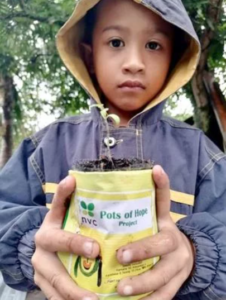
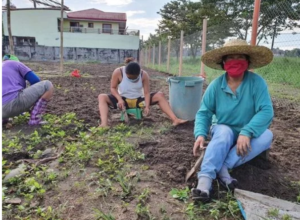

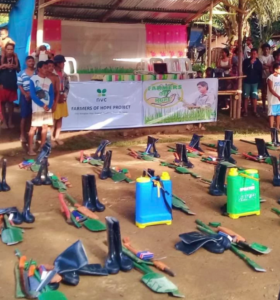
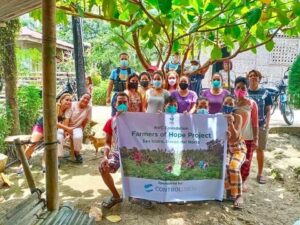

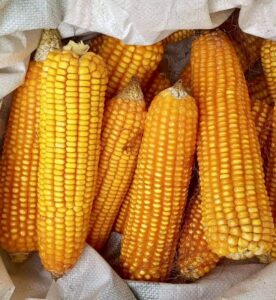
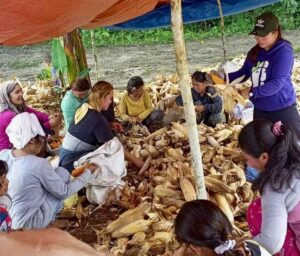
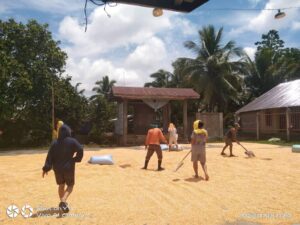
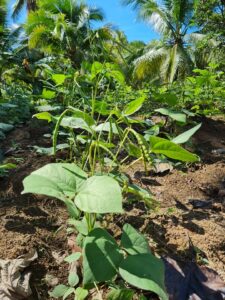
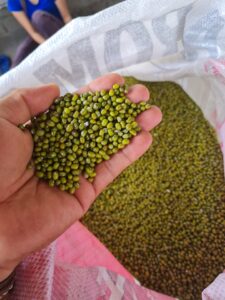
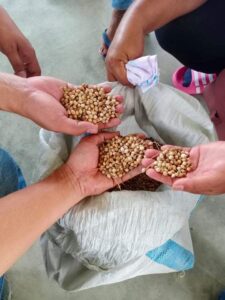
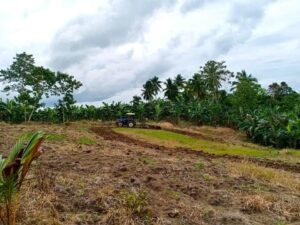
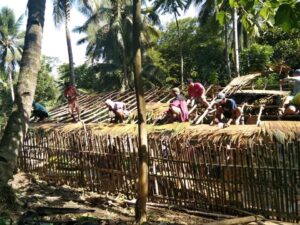
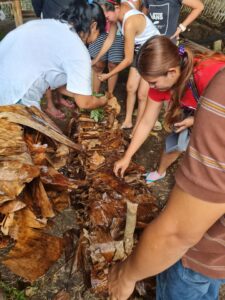
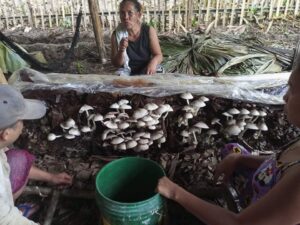
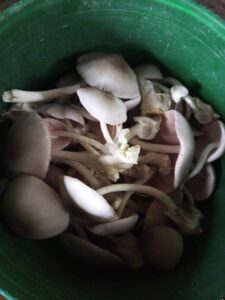
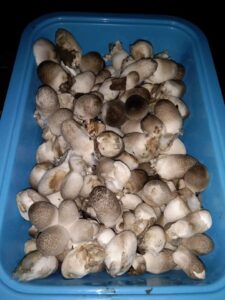
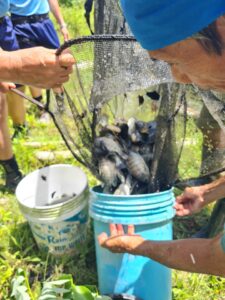
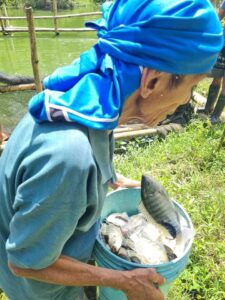
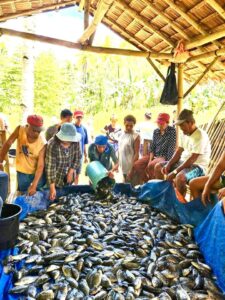
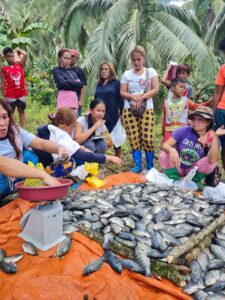
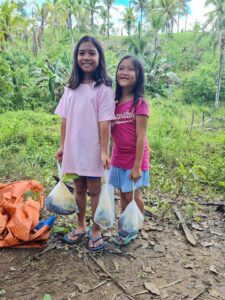
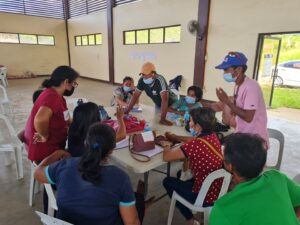
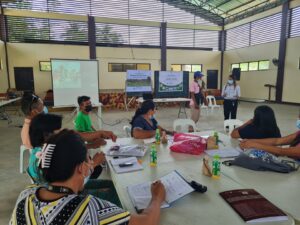

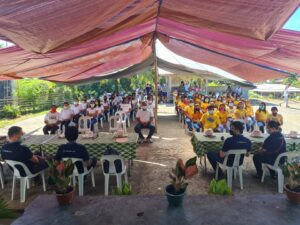
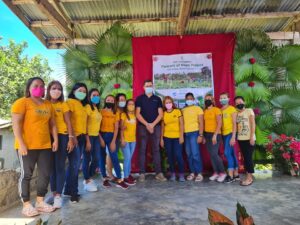
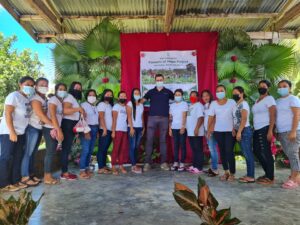
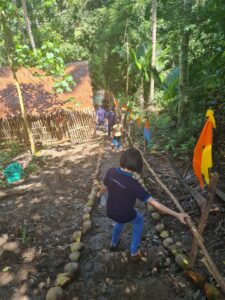
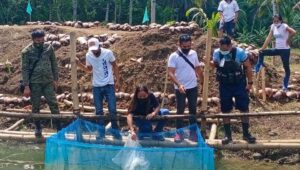
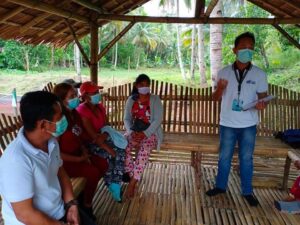
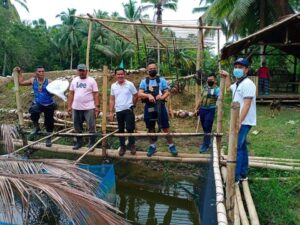
No Comments to "Control Union Philippines Helps NVC’s San Isidro Farmers of Hope Work towards Food Security"